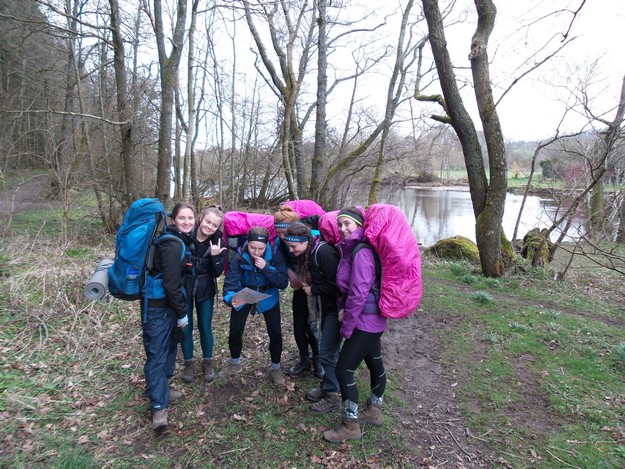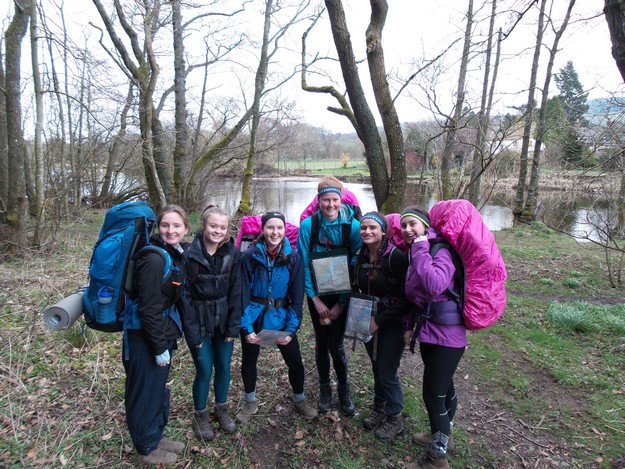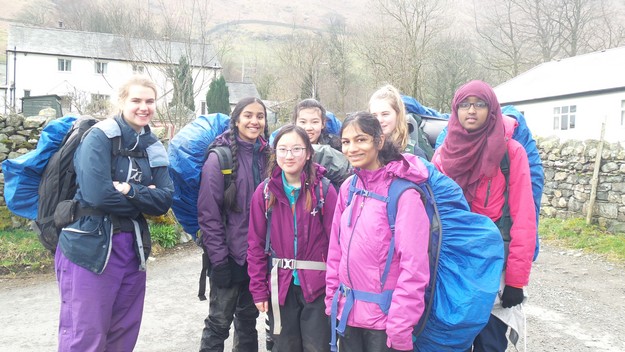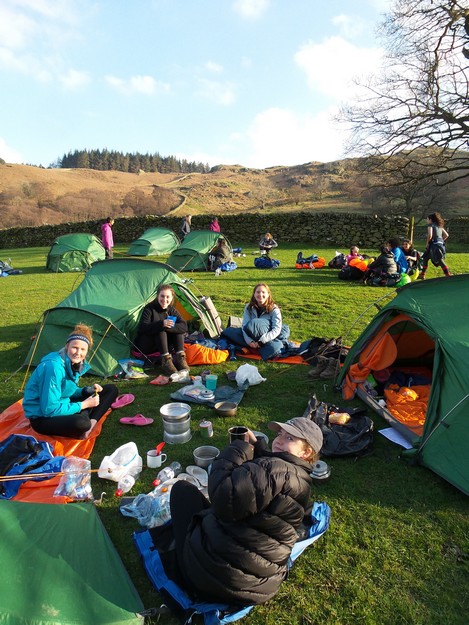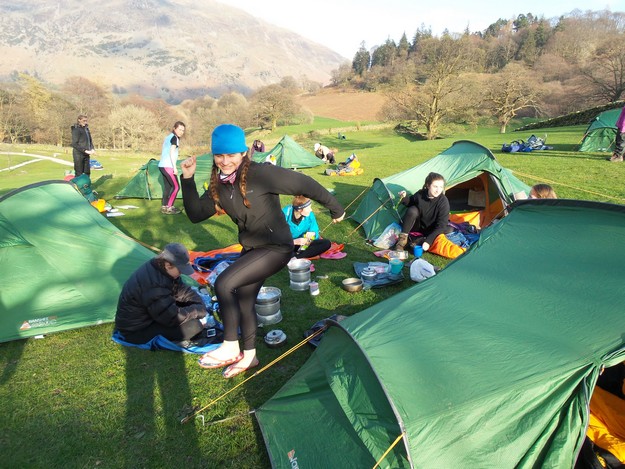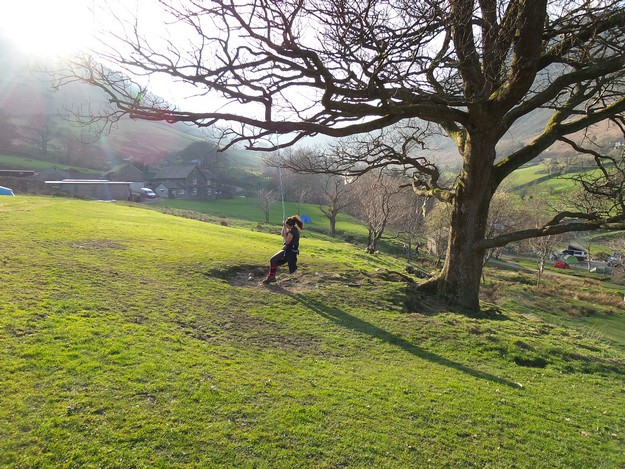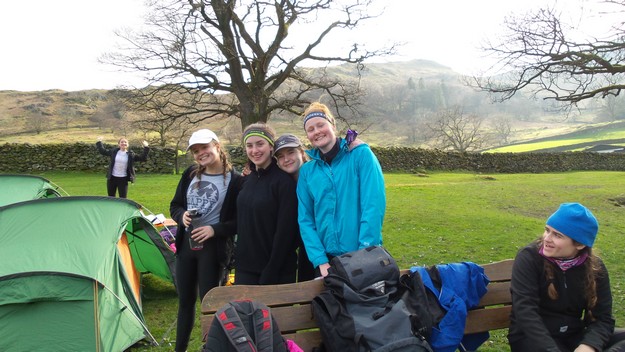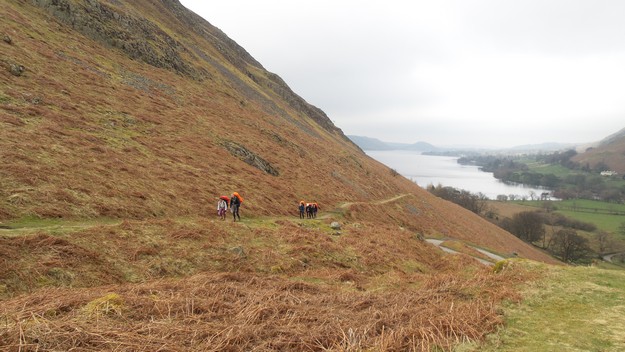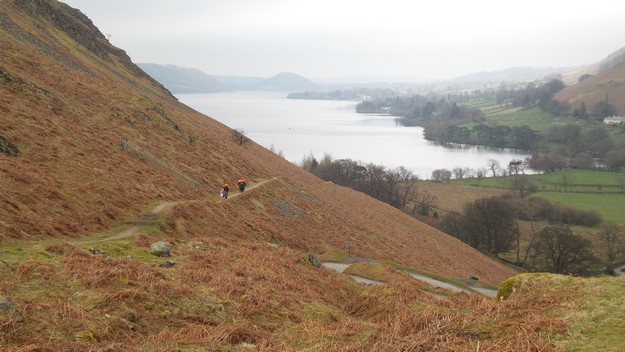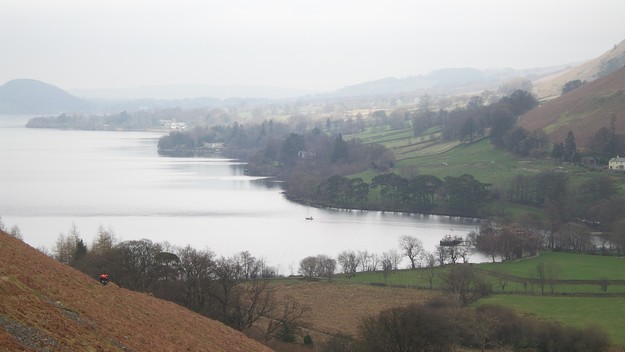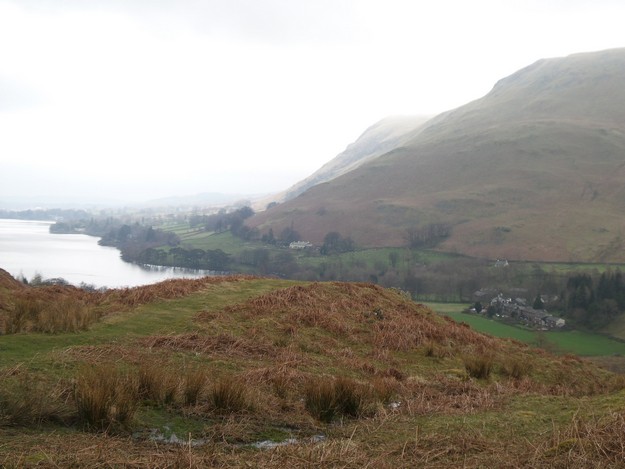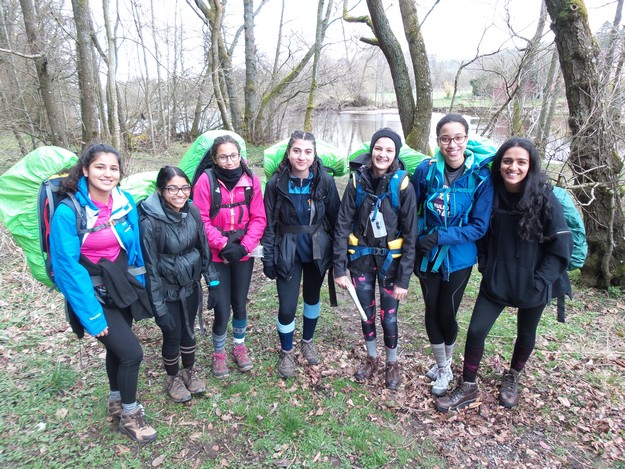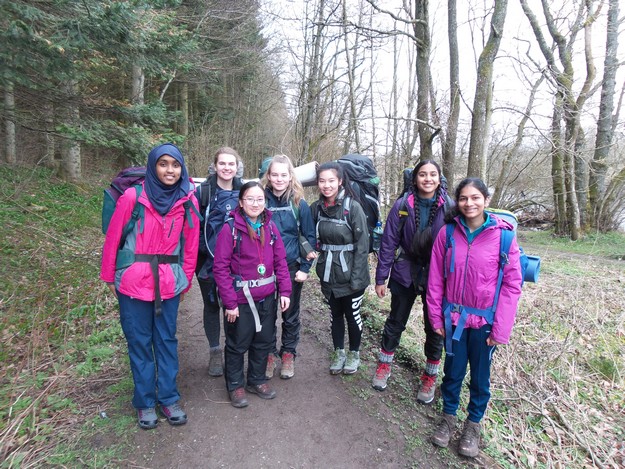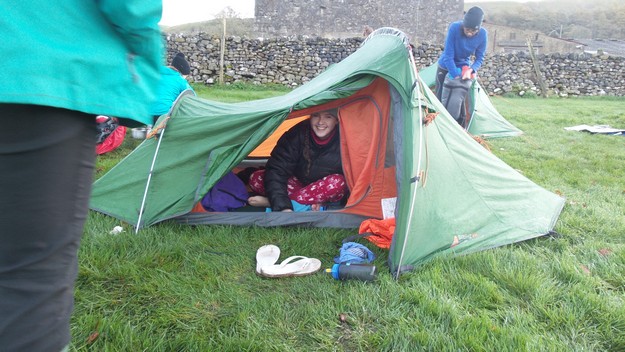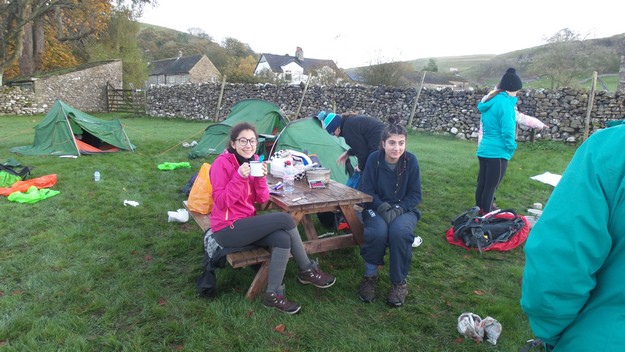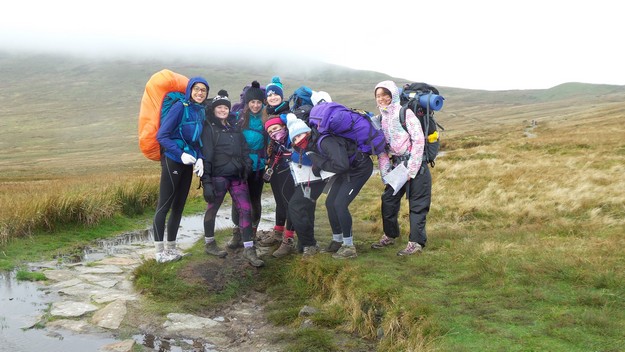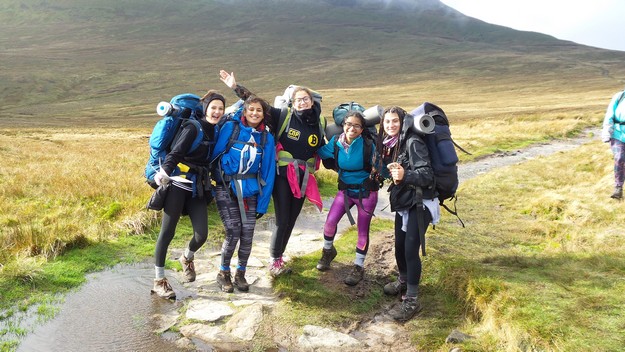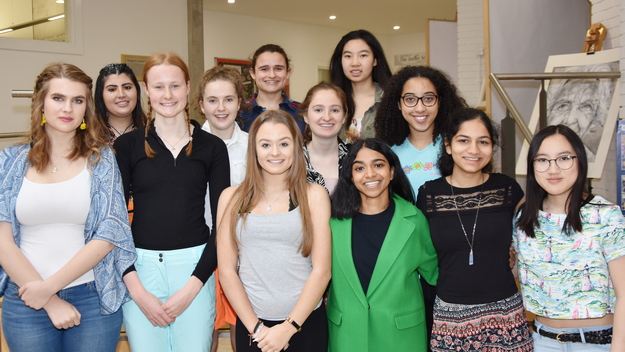Duke of Edinburgh Gold Awards
Congratulations to all the Upper Sixth girls who have completed their Duke of Edinburgh’s Gold Award this year!
In the first two terms of this academic year, 17 girls have successfully completed their Duke of Edinburgh Gold Award. Five of these girls have now gone on to university but twelve are still in the Upper Sixth and have completed this award over 18 months alongside their academic studies. We expect another nine girls currently in the Upper Sixth to complete their awards by the end of this year.
For any student to achieve the Gold Award whilst maintaining their academic standards, extracurricular commitments and enormous range of other activities is highly commendable, but for 21 girls to do this within the year group is outstanding. All those concerned are to be commended for their commitment, organisation, teamwork, resilience and sheer determination to succeed.
It has been a real privilege to work alongside the girls, to share their enthusiasm and to support them on their expeditions. All students will be invited to either Buckingham Palace or to St James’s Palace in London to receive their certificates from HRH The Earl of Wessex or another senior member of the Royal Family.
Already this year, a further 21 girls in the Lower Sixth have completed their gold practice expedition and are looking forward to the qualifier expedition to the Yorkshire Dales during May half term.
Dr Sue Madden, Assistant Head
A little more about some of the girls’ experiences of taking on the challenge of this award … (well, actually, a LOT more!)
Miranda
Completing my Gold Duke of Edinburgh award has been a hugely rewarding and enriching experience, despite its demanding nature at times.
In order to achieve the Award, you must complete 12 months of physical activity and volunteering and six months of learning a skill.
Withington introduced me to Lacrosse right back in year 7, and I have continued with the sport ever since, using my weekly trainings and matches to complete the physical part of the award, but also coaching younger year groups to complete the volunteering section.
Furthermore, I worked towards my Grade 8 violin to complete my skills section. In my opinion, the most challenging part of the DofE award is the completion of two 4-day and 3-night expeditions. Despite my group being fairly athletic, four days of hiking through the Yorkshire Dales and The Lake District proved to be challenging, especially in harsh weather conditions.
At the Gold level, you are required to complete a 5 day-4 night residential, at a DofE approved activity provider, preferably without anyone else you know! Due to my love for the environment, I chose to participate in ‘The Earth Skills Project’ a woodland conservation group based in Helsby.
DofE has provided me with the opportunity not only to explore my personal strengths and weaknesses, but to engage with other young people, improve my confidence and independence, whilst having a positive impact in my local community. I’m extremely delighted to be receiving my award at Buckingham Palace later this year.
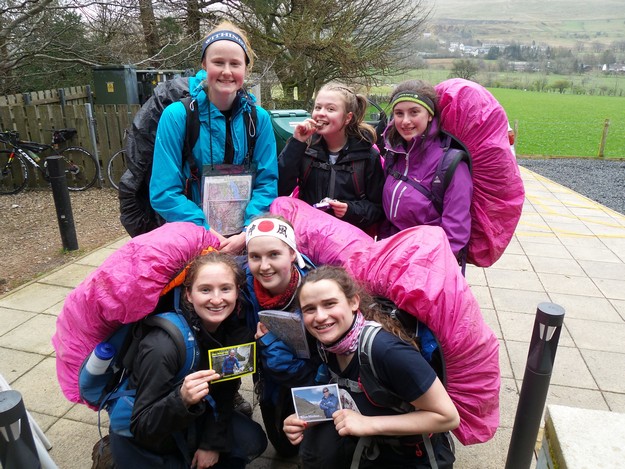
Jemima
During the Duke of Edinburgh Award I was able to take part in different activities which allowed me to achieve all three levels; Bronze, Silver and Gold.
For my Bronze Award I volunteered at Beavers in my village, as well as playing the flute and lacrosse. For Silver, I continued playing lacrosse and helping at Beavers but I started cooking and baking every week as my skill. This was a great opportunity as I was able to learn new skills which I will use throughout life, especially when I go to university next year. Then, for the Gold Award, I volunteered at Scouts, played lacrosse and rounders and I was a member of the school choir as well as taking part in Phantom of the Opera.
Trying new things and committing to them was really beneficial as it allowed me to improve my skills within each of the activities as well as meeting people along the way who were interested in the same things as I am. This was a real benefit of taking part in the Award, and made it even more fun! Being able to go into new situations is a skill that I will use constantly in the future, and is one of the most valuable things the Award has given me.
Throughout the process, School provided all the support that I needed. I was able to take part in sports at school as well as the musical activities I did. For the expeditions, School made sure we got to and from our start and end destinations, as well as providing encouragement along the way! They also organised an external company to help us with the required training and to ensure we had safely arrived at the campsites.
Overall, taking part in the Duke of Edinburgh award has taught me that I can achieve a lot if I push myself (even when the 800m climb ahead seems impossible!), I have learnt new skills, met new friends and become more open to new challenges in all aspects of my life. The award has helped shape me as I have grown over the past few years and has shown me how important commitment, communication and teamwork are. It has been a wonderful experience which I have gone through with friends, which is part of what makes the award so fun whilst still being challenging. I am proud of my achievements and grateful for the opportunity to take part in the Duke of Edinburgh Award.
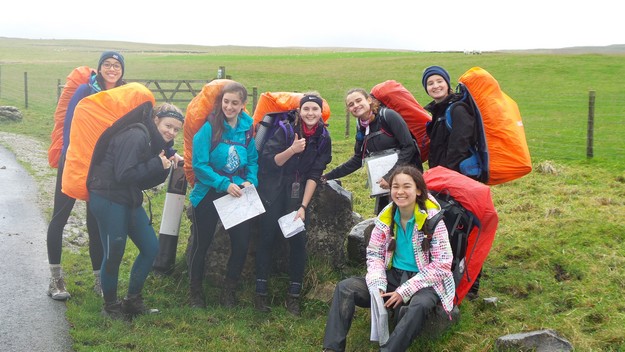
Ella
What did you do?
I volunteered at a local charity shop for a year, developed my Mandarin Chinese speaking skills over a year’s worth of weekly lessons, did six months of ballet-based exercise, completed a week-long residential film course where I made a short film with a group of peers, and I completed two four-day long expeditions.
How did you go about it?
Having already completed my Bronze and Silver Duke of Edinburgh awards, I was familiar with many of the elements of the experience. The residential part of the Gold Award, however, was entirely new. Spending a week away from home with total strangers might have seemed intimidating but I was lucky enough to participate in a course I really enjoyed. During the four-day long expeditions the importance of forming friendships within the team that I was walking with became clear as we worked together to complete the expedition and stay motivated.
How much support did your school offer?
The most valuable support the School offered was the support of teachers on the expedition. We would finish a long day of walking with heavy packs in miserable weather and be greeted with enthusiasm and positivity from our teachers. Our headmistress even drove all the way to the Lake District to wish us well at the halfway point of our expedition. This support motivated us and lifted our spirits in what can be a very challenging experience.
What did you achieve?
Achieving my Gold Duke of Edinburgh Award showed me what I was capable of. The long-term commitment and the difficulty of the expeditions were hard obstacles to overcome but the gratification of achieving this award was worth it.
How will the experience benefit your future career or life?
The teamwork skills you gain on Duke of Edinburgh are unparalleled. Your ability to make navigating decisions with your team is really tested as you often are unused to using walking maps and will most probably be exhausted from a day of hiking and a sleepless night in a tent. The residential trip will also benefit my future career as I am very interested in working in the film industry. Although I only spent a week on this film course, I was able to learn the basics of how to write a screenplay for a short film, use a film camera and organise a day of shooting scenes.
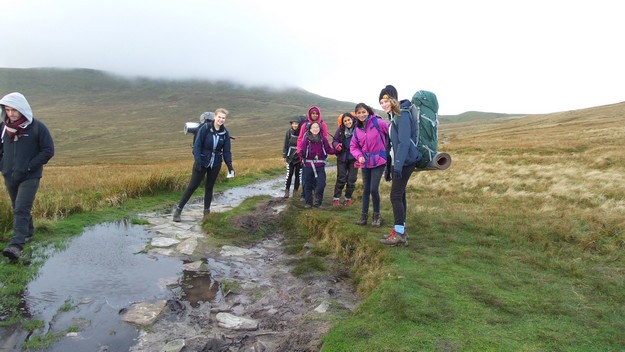
Florence
What did you do to achieve your DofE Gold Award? / How did you go about it?
To achieve my D of E Gold Award, I did 12 months Volunteering, 12 months Physical, 6 months Skills, a residential course and the practice and qualifying expeditions.
For my volunteering, I helped at my local leisure centre teaching disabled children how to swim. Although I found this very challenging at times, teaching the children was an immensely rewarding experience as I got to see them improve and become more confident in their swimming each week. In addition to this I have been able to develop my communication skills and problem-solving skills as I have had to think of new ways to teach different strokes to the children depending on their disability.
For my Physical section, I played hockey and lacrosse for the school team and hockey outside of school. As well enabling me to spend more time with my friends, I have been able to develop my techniques in these sports and I have become a team player, encouraging everyone to do their best.
I played my viola for my skills section. Attending lessons and practicing each week, made my viola playing improve and made me good at managing practising my instrument and homework whilst at school.
For the residential section of DofE, a friend and I travelled down to Devon to take part in a Water Management and First Aid Course. As well as building on skills that we learnt during our expedition training, we met many new people, who were all extremely friendly, whilst taking part in coasteering and other activities.
Unfortunately, for the practice expedition I couldn’t do the date with school, so I had to do this outside of school with people that I had never met before. This was quite a daunting prospect as I had to spend four days with them. But, I quickly made friends with my group and during the expedition we learnt a lot about each other and looking back I don’t see what I was so worried about!
For the qualifying expedition, we went to the Lake District, where we spend four days in the beautiful scenery around Ullswater and Grasmere. Although the walking was challenging, we had an amazing time chatting and laughing as we went around the countryside. My favourite memory from the exhibition was bumping into Alan Hinkes on our last day. We had just come through an extremely muddy field, where one of the members of our group had got stuck knee deep in the mud (which was hilarious), when Alan came up to us and said that we looked like we were having a good time. After a short conversation, we learnt that Alan was the first Briton to climb all the world’s 14 peaks above 8,000 metres; it was amazing to hear about his experiences at first-hand and a memory that I shall cherish for many years to come.
How much support did the School offer?
School organised all relevant training, such as first aid and how to use a Trangia, so that we could complete our expeditions safely. School also organised our expeditions, choosing where we would complete them, but giving us enough independence by letting us choose our own groups and routes.
Members of staff that accompanied us on the expeditions were incredibly motivating, making us laugh and spurred us on to the next check point, even when we were covered in mud.
How will the experience benefit your future career or life?
I have applied to study medicine at university and having DofE Gold has been very helpful. It has enabled me to develop skills, such as teamwork, resilience and time management that are vital as a doctor and I know that the skills that I have developed will last me for the rest of my life. DofE has also allowed me to work with of people of all ages, from the younger children that I teach to swim, to older team mates on my local hockey team which will help me communicate with people of all ages later in my career.
What did you learn about yourself through the process of achieving your DofE Gold Award?
By taking part in DofE I have been able to develop my problem-solving skills. Trying to pack your backpack effectively and trying to work out which way to go with your team when you think you are slightly lost all seem like a challenge during DofE, but at the end of it you realise how much your problem-solving skills have developed.
I have also learnt that I am resilient. Climbing up a what seems like a never-ending hill in the rain can be quite disheartening at times, but I have learnt that I can keep going up to the top and not to give up. I have also learnt to remain positive (even when the weather is not!), and to encourage others as it will keep team morale up and will make the top of the hill arrive sooner.
I would highly recommend doing Do E, no matter whether it is Bronze, Silver or Gold. DofE encourages independence and develops skills that are relevant to all careers today. Not to mention, having a lot of fun and giggles, spending time with your friends.
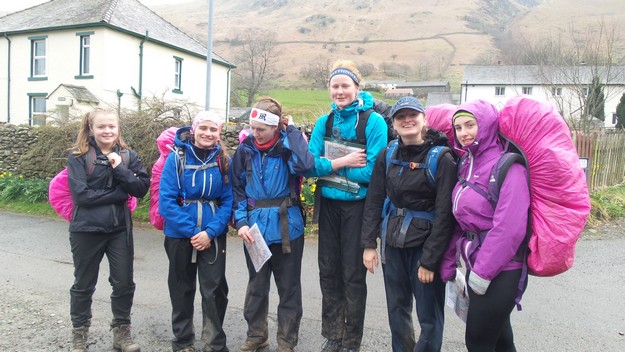
Grace
What did you do to achieve your DofE Gold Award?
To achieve my Gold DofE award I completed a year of volunteering, coaching hockey at my school and at my local hockey club. The most well-known aspect of DofE is the expedition. I completed a practice expedition in Clitheroe and my qualifying expedition in the Lake District – both of which lasted 4 days and 3 nights, where I walked approximately 20km a day, and lived entirely independently for the duration. As my skill, I completed my Grade 8 LAMDA exam, which took me a year to work towards. I used hockey for the physical section of my award and for my residential I spent two weeks completing charity work in Uganda. All of which I thoroughly enjoyed.
How did you go about it?
Many of the things I did to achieve my DofE award were things I already participated in. Coaching was something I took up for the purpose of DofE, and something I will continue to do in the future – this was relatively straightforward to sort out through School and Alderley Edge Hockey Club.
How much support did the School offer?
School were excellent in guiding me in how to achieve my Gold DofE – in all areas, from inputting my data to eDofE to advising me as to the best equipment to use in my expedition. They organised the dates and locations of the expedition and arranged training days for us all, but allowed us the freedom to plan our own expedition – which I really enjoyed.
How will the experience benefit your future career or life?
Gold DofE is a prestigious award recognised by most employers – which will hopefully allow them to recognise my dedication to tasks I am faced with, as I have followed the DofE Award all the way through to completing Gold, rather than stopping after Bronze or Silver.
What did you learn about yourself through the process of achieving your DofE Gold Award?
Gold DofE not only taught me navigate my way through an unknown area using only a map and a compass, something which I had never previously been able to do, but it also helped to develop numerous personal skills, including resilience, persistence and teamwork, all of which are hugely applicable to situations I will face in the future.
